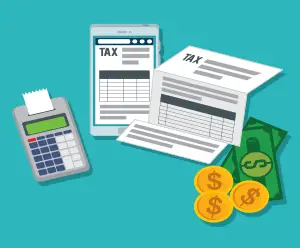
Understanding the IRS Substitute for Return
Click to ask Mike Ask Mike The Internal Revenue Service (IRS) Substitute for Return (SFR) is a term many taxpayers

Installment payment plans with the IRS offer a structured approach to managing tax debt, providing taxpayers with a systematic way to repay their obligations over time. While they come with certain benefits, such as affordability and convenience, they also have drawbacks that need to be considered carefully.
Pros:
Cons:
Certainly! Let’s adjust the numbers in the example to provide variation:
Example:
Let’s consider the case of Sarah and Michael, who owe $25,000 in back taxes to the IRS. If they opt for a $200 monthly payment plan at a time when interest and penalties are accruing at a rate of 8% per year, they would incur an additional $2,000 in interest over the course of a year.
Over twelve months, Sarah and Michael would have made payments totaling $2,400 ($200 x 12). However, the interest accrued on their initial tax debt adds $2,000 to their balance. As a result, at the end of the year, despite their efforts to pay down the tax debt, they would still owe $25,600 ($25,000 initial tax debt – $2,400 paid + $2,000 interest).
This example highlights a common pitfall of installment payment plans with the IRS—the tendency for interest and penalties to outpace the repayment efforts of the taxpayer, ultimately leading to a situation where the tax debt grows rather than diminishes.
In summary, while installment payment plans with the IRS can offer a structured and affordable approach to tax debt repayment, they are not without their drawbacks. Taxpayers should carefully weigh the pros and cons before committing to such arrangements, considering their individual financial circumstances and long-term goals. Additionally, exploring alternative options and seeking professional tax advice may help taxpayers make more informed decisions about managing their tax debt effectively.
You can now ask our AI assistant any questions you have about your tax debt or any tax-related issues. Whether you’re unsure about payment plans, need clarification on penalties, or want information on how to resolve your tax situation. Our AI is ready to assist you with all your tax-related concerns.

By interacting with our AI assistance, you agree to our terms & conditions. Enjoy our AI Tax Assistant responsibly.
Ask me any questions...
Related Posts

Click to ask Mike Ask Mike The Internal Revenue Service (IRS) Substitute for Return (SFR) is a term many taxpayers

Click to ask Mike Ask Mike The Internal Revenue Service (IRS) Substitute for Return (SFR) is a term many taxpayers

Click to ask Mike Ask Mike The Internal Revenue Service typically operates within a 10-year window, commencing from the

Click to ask Mike Ask Mike The Internal Revenue Service (IRS) operates within specific timeframes dictated by statutes of limitations

Click to ask Mike Ask Mike understanding the ins and outs of the 10-year statute of limitations (SOL) is essential.
Recent Posts

Click to ask Mike Ask Mike The Internal Revenue Service (IRS) Substitute for Return (SFR) is a term many taxpayers

Click to ask Mike Ask Mike The Internal Revenue Service (IRS) Substitute for Return (SFR) is a term many taxpayers

Click to ask Mike Ask Mike The Internal Revenue Service typically operates within a 10-year window, commencing from the

Click to ask Mike Ask Mike The Internal Revenue Service (IRS) operates within specific timeframes dictated by statutes of limitations

Click to ask Mike Ask Mike understanding the ins and outs of the 10-year statute of limitations (SOL) is essential.
Disclaimer: This is educational content, not legal, accounting, or tax advice.
This is a tax debt resource website, not to be used in lieu of a tax attorney or for legal advice. All information, Ai chat responses, articles, materials, and content are intended to inform users on a variety of tax topics. In no way is it intended to be construed as accounting, legal, tax, other services or advice. This site is not intended to be used to avoid tax penalties or tax debt that may be imposed by law. Terms and Conditions. Your use of this site constitutes acceptance of the following terms and conditions.
This is a tax debt resource website, not to be used in lieu of a tax attorney or for legal advice. All information, Ai chat responses, articles, materials, and content are intended to inform users on a variety of tax topics. In no way is it intended to be construed as accounting, legal, tax, other services or advice. This site is not intended to be used to avoid tax penalties or tax debt that may be imposed by law. Terms and Conditions. Your use of this site constitutes acceptance of the following terms and conditions.
© 2023 · Tax Debt Monster, Inc. All rights reserved

For all Tax Professionals that would like to partner up with us. By partnering with us, you’ll help us connect and make a positive impact in the tax community. Partner up with us and receive a complimentary Ai Tax Sidekick to help support your clients at no cost! Click here if you’re interested in our Partner-Up program

By interacting with our AI assistance, you agree to our terms & conditions. Enjoy our AI Tax Assistant responsibly.
How may I help you with your tax issue?